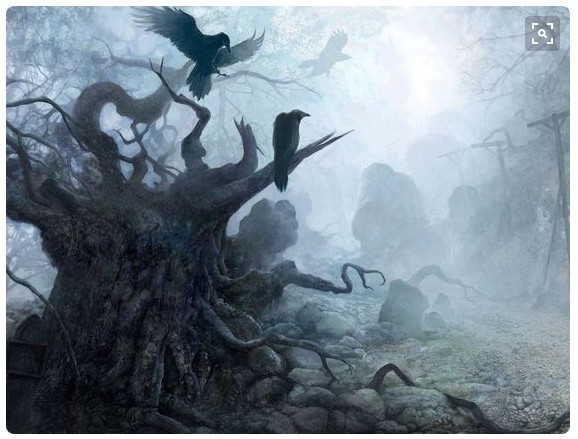In actual numbers, consider this–the word “run” in English (according to the Oxford English Dictionary) has over 170 meanings, the word “set” has over 400, and the word “turn” has over 200! At Dictionary.com you can see at least 119 definitions for the word “set” along with origin of the word before 900 A.D. and other variations!
Why indeed do English words have so many meanings? The richness–and confusion–of the English language has arisen out of twenty centuries of adjustment to invaders of the British Isles since before the Romans stepped on shore, and a subsequent willingness to incorporate and integrate new words from the cultures of those same invaders. To make the words belong…
The influences that shaped the words we now use have come from Latin, German, French, and Scandinavian (those ravaging Vikings!) sources, among others, and those sources were constantly in flux, changed, and altered. Each one overlaid another and was woven as well into local dialects. As a result, the language we use now evolved out of a vast kaleidoscope of multiple definitions for the same word, words that sound the same but have different meanings, words that lend themselves to double meanings, and words that mean the opposite of what they seem to be. Those are just some of the aspects that have created this complex and fantastic language.
The outcome of all this for English has been the development of a deep and creative and omnipresent subtext, the subtle meaning that underlies the intention of words, so that what is said, says more. Take, for example, the phrase from Shakespeare’s Macbeth: “Light thickens, and the crow/Makes wing to th’ rooky wood.” It appears at a point when day is turning into night, when sleep should come. It implies the darkness of the woods, made even deeper by the use of “rooky”–for rook is another name for crow, but also for a piece in a game of chess. There is an anticipation implied in the words “makes wing”–some event is in transit. A few short words hint and summarize the import of the play–the impending darkness of the choices Macbeth will make in the terrible game he has chosen to play that flies in the face of reason.
If that seems like interpretation, it is–but the intention comes through the words themselves, even without explanation. The very sound of the words creates the sense of impending doom.
In the next post I’ll explore a few more of these. They really are intriguing in other contexts, as well.



It’s not creative at all, because it doesn’t create another word for each meaning. I don’t know, , for daily casual word it’s like selfishness, they use same word for different meaning. Unfortunately we have to follow and figure out the meaning of the word. I grew up in a country with a language that has different word for every meaning. I only remember 2 words that have double meaning, yes only 2 not hundreds as English.
Yes, English is very complex. I would have a lot of trouble if I had to learn it and it was not my first language!